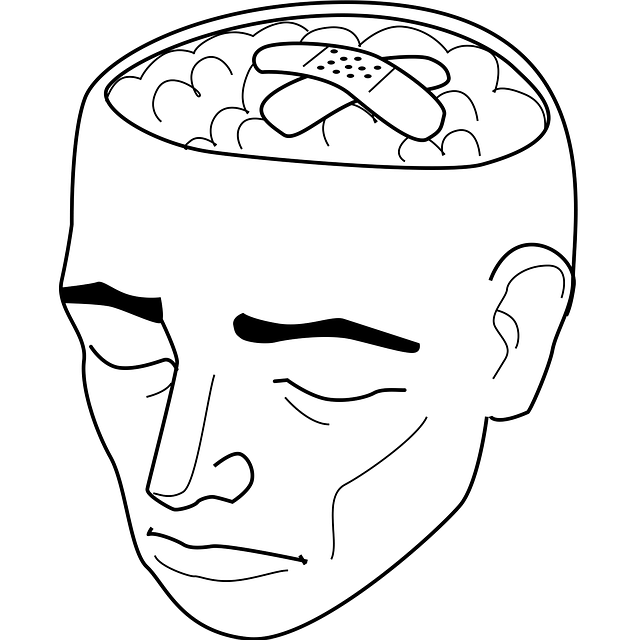La compréhension de l'évaluation des risques en thérapie pour enfants francophones est essentielle dans le contexte culturel unique de la communauté francophone. Les thérapeutes, en intégrant la sensibilité culturelle et les compétences culturelles, peuvent identifier et atténuer les dangers spécifiques affectant le bien-être des jeunes patients. Des formations et initiatives de sensibilisation améliorent la connaissance des questions de santé mentale et favorisent un environnement plus sain. Cela permet de développer des stratégies de minimisation des risques ciblées et adaptées aux besoins culturels spécifiques, assurant ainsi une approche efficace pour les enfants francophones. Un plan de minimisation des risques complet, incluant des évaluations rigoureuses, des interventions alignées avec l'identité culturelle, et des méthodes de réduction du stress adaptées, crée un environnement sécurisé pour la thérapie.
“Explore effective risk assessment and harm minimization strategies specifically tailored for therapy with French-speaking children. This comprehensive guide delves into the unique considerations when navigating sensitive issues in this linguistic context. From understanding cultural nuances in risk assessment to developing robust minimization plans, therapists will find valuable insights. Discover practical strategies for identifying potential harms, implementing safe practices, and monitoring progress, ensuring a secure therapeutic environment for French-speaking youth.”
- Understanding Risk Assessment in Child Therapy: A French-Speaking Perspective
- Identifying Potential Harms and Risks Specific to Children
- Developing a Comprehensive Minimization Plan: Strategies for Therapists
- Implementing and Monitoring the Plan: Ensuring Safe Practice in French-Speaking Environments
Understanding Risk Assessment in Child Therapy: A French-Speaking Perspective

La compréhension de l’évaluation des risques en thérapie pour enfants francophones est essentielle dans le contexte culturel unique de la communauté francophone. Cette approche vise à identifier et à atténuer les dangers potentiels qui pourraient nuire au bien-être émotionnel et physique des jeunes patients. En tant que thérapeutes, il est crucial de prendre en compte les facteurs culturels et linguistiques qui influencent le développement des enfants francophones.
Les publicités de sensibilisation culturelle et les formations en compétence culturelle pour les professionnels de la santé jouent un rôle vital dans ce processus. En améliorant la compréhension du public francophone sur les questions liées à la santé mentale, ces initiatives favorisent un environnement plus sain et résilient. De plus, elles permettent aux thérapeutes d’offrir des services adaptés aux besoins spécifiques des enfants francophones, assurant ainsi une approche de minimisation des risques plus efficace et sensible à la culture.
Identifying Potential Harms and Risks Specific to Children

Identifying potential harms and risks specific to children is a crucial step in risk assessment for any organization or service working with young individuals. This includes mental health issues, which can manifest uniquely in children, such as anxiety disorders, depression, and even signs of trauma that may require therapy for children French speaking professionals to address effectively. A thorough understanding of these vulnerabilities allows for the development of tailored harm minimization strategies.
For instance, crisis intervention guidance is essential when dealing with children who have experienced adverse events or are at risk of self-harm. Boosting their confidence through specialized therapy can significantly contribute to their mental wellness. The production of a Mental Wellness Podcast Series can also serve as an engaging tool to reach a broader audience of parents and caregivers, offering insights and resources for recognizing and managing common childhood challenges.
Developing a Comprehensive Minimization Plan: Strategies for Therapists

Developing a comprehensive harm minimization plan is an essential aspect of therapy for children speaking French. Therapists should start by conducting a thorough risk assessment, taking into account the unique cultural and linguistic background of their clients. This involves understanding the child’s family dynamics, social environment, and any potential risks or protective factors specific to their community. By integrating Cultural Sensitivity in Mental Healthcare Practice, therapists can tailor interventions that resonate with the child’s identity and beliefs, fostering a safe and supportive therapeutic space.
Effective planning includes implementing evidence-based strategies tailored to the individual needs of each child. This might involve creating structured routines, providing clear boundaries, and offering coping mechanisms specifically designed to address the child’s challenges. Regularly reviewing and updating the minimization plan is crucial, ensuring it remains relevant and effective as the child’s mental wellness evolves. Therapists should encourage open communication, empowering children to actively participate in their healing journey.
Implementing and Monitoring the Plan: Ensuring Safe Practice in French-Speaking Environments

Implementing and monitoring a harm minimization plan is crucial for creating a safe environment, particularly when offering therapy for children in French-speaking regions. This process involves assigning clear roles and responsibilities to ensure consistent risk assessment and management. All staff members must be trained in recognizing potential risks and implementing appropriate interventions, focusing on both individual client needs and broader environmental considerations.
Regular reviews and updates of the plan are essential to adapt to changing circumstances. By fostering a culture of vigilance and proactive safety measures, therapy sessions can effectively address challenges while boosting the confidence of French-speaking children. Additionally, incorporating stress reduction methods tailored to their cultural context can enhance overall well-being and facilitate effective stress management, creating a nurturing atmosphere conducive to healing and growth.
In the realm of therapy for children from French-speaking backgrounds, risk assessment and harm minimization are paramount. By understanding specific risks and identifying potential harms unique to this population, therapists can develop comprehensive minimization plans tailored to their needs. Implementing these strategies ensures safe practice in French-speaking environments, fostering an environment where children feel secure while navigating therapeutic processes. This multi-faceted approach not only enhances the effectiveness of therapy but also underscores the commitment to minimizing risks and maximizing benefits for young clients.










